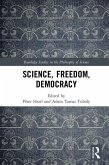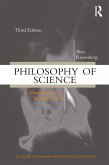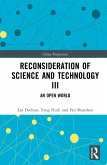Descartes once argued that, with sufficient effort and skill, a single scientist could uncover fundamental truths about our world. Contemporary science proves the limits of this claim. From synthesizing the human genome to predicting the effects of climate change, some current scientific research requires the collaboration of hundreds (if not thousands) of scientists with various specializations. Additionally, the majority of published scientific research is now co-authored, including more than 80% of articles in the natural sciences, meaning small collaborative teams have become the norm in science. This volume is the first to address critical philosophical questions regarding how collective scientific research
could be organized differently and how it
should be organized. For example, should scientists be required to share knowledge with competing research teams? How can universities and grant-giving institutions promote successful collaborations? When hundreds of researchers contribute to a discovery, how should credit be assigned - and can minorities expect a fair share? When collaborative work contains significant errors or fraudulent data, who deserves blame? In this collection of essays, leading philosophers of science address these critical questions, among others. Their work extends current philosophical research on the social structure of science and contributes to the growing, interdisciplinary field of social epistemology. The volume's strength lies in the diversity of its authors' methodologies. Employing detailed case studies of scientific practice, mathematical models of scientific communities, and rigorous conceptual analysis, contributors to this volume study scientific groups of all kinds, including small labs, peer-review boards, and large international collaborations like those in climate science and particle physics.
Dieser Download kann aus rechtlichen Gründen nur mit Rechnungsadresse in A, B, BG, CY, CZ, D, DK, EW, E, FIN, F, GR, HR, H, IRL, I, LT, L, LR, M, NL, PL, P, R, S, SLO, SK ausgeliefert werden.
Hinweis: Dieser Artikel kann nur an eine deutsche Lieferadresse ausgeliefert werden.









